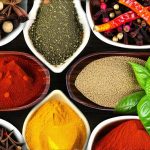Many individuals experience digestive discomfort when exposed to cold temperatures, or after consuming cold foods and drinks. This isn’t necessarily an indication of illness, but rather a sign that their digestive system is sensitive – often referred to as “cold stomach” in Traditional Chinese Medicine (TCM) or simply as heightened sensitivity in functional medicine. The sensation can range from mild bloating and cramping to more severe pain, diarrhea, or nausea. This vulnerability stems from a variety of factors including weakened digestive fire (a concept central to TCM), compromised gut motility, or underlying conditions that make the digestive system more reactive to temperature changes. Understanding this sensitivity allows us to explore gentle, natural ways to support digestion and mitigate discomfort, and warming herbs and spices offer a beautiful pathway to doing so.
This approach isn’t about curing an illness; it’s about proactively supporting the body’s innate ability to digest effectively, even in challenging conditions. It recognizes that digestive health is deeply interconnected with overall wellbeing. By incorporating carefully chosen warming ingredients into our diet, we can gently stimulate digestion, reduce inflammation, and create a more resilient digestive system. This holistic approach focuses on fostering internal warmth – not just physical heat, but the vibrant energy of efficient digestion – to alleviate discomfort and promote lasting gut health. It’s about working with the body rather than against it, and recognizing that small changes can yield significant results. How to plan balanced meals can also help with this process.
The Role of Warming Spices in Digestion
The concept of “warming” foods isn’t about literal temperature; it refers to their energetic properties within TCM and Ayurvedic medicine. These spices don’t necessarily make food hotter in the conventional sense, but they stimulate digestive processes, increase circulation to the gut, and help break down food more efficiently. This is particularly beneficial for those with cold-sensitive stomachs who often struggle with sluggish digestion. Think of it as kindling a fire – gently building up internal heat to support optimal function. Ingredients like ginger, cinnamon, cardamom, cloves, and black pepper aren’t merely flavour enhancers; they are potent digestive aids that can significantly improve comfort and regularity.
Many cold-sensitive stomachs experience dampness in TCM terms, meaning excess fluids and sluggish digestion. Warming spices help to dispel this dampness by promoting circulation and encouraging the movement of Qi (vital energy) throughout the digestive system. They also possess anti-inflammatory properties which can soothe irritation and reduce bloating. This is why incorporating these spices isn’t just about immediate relief; it’s about addressing underlying imbalances that contribute to chronic digestive discomfort. Regular, mindful use of warming spices can gradually strengthen the digestive system over time, making it less reactive to cold temperatures and dietary triggers. Daily habits can also play a role in digestive health.
The beauty of using spices lies in their versatility – they are easily incorporated into a wide range of dishes, from soups and stews to teas and smoothies. However, moderation is key. While warming spices are beneficial, excessive amounts can overwhelm the system and lead to discomfort. It’s important to start small and observe how your body responds, adjusting quantities accordingly. Also, consider individual sensitivities – what works well for one person may not work for another. Listening to your body’s cues is paramount in this process. Hydration strategies are also important to consider alongside dietary changes.
Ginger: The Digestive Dynamo
Ginger (Zingiber officinale) is arguably the most well-known and widely used warming spice for digestive health. Its pungent aroma and flavour stimulate saliva production, kickstarting the digestive process even before food reaches the stomach. This pre-emptive action helps prepare the gut for efficient breakdown of food. Gingerol, the active compound in ginger, has powerful anti-inflammatory properties that can soothe an irritated digestive tract and reduce nausea.
Here’s how you can incorporate ginger into your routine:
1. Ginger Tea: Steep a few slices of fresh ginger in hot water for 10-15 minutes. Add honey or lemon to taste. This is a gentle way to support digestion, especially after meals.
2. Fresh Ginger in Cooking: Grate fresh ginger into stir-fries, soups, and marinades. Its warming properties complement a variety of cuisines.
3. Ginger Chews/Candies: For mild digestive discomfort on the go, consider ginger chews or candies (choose options with minimal added sugar).
It’s important to note that while generally safe, individuals taking blood thinners should consult their healthcare provider before consuming large amounts of ginger as it may have a mild anticoagulant effect. Improving posture can also help with digestive comfort.
Cinnamon: Sweet Relief and Digestive Support
Cinnamon (Cinnamomum) isn’t just a delightful flavouring; it also possesses significant digestive benefits. It helps to improve gut motility, reducing bloating and constipation – common complaints among those with cold-sensitive stomachs. The warming properties of cinnamon stimulate blood flow to the digestive system, aiding in nutrient absorption and overall digestion. Furthermore, cinnamon has been shown to help regulate blood sugar levels, which can indirectly support digestive health by preventing spikes and crashes that can exacerbate symptoms.
There are two main types of cinnamon: Ceylon (“true” cinnamon) and Cassia (more common and affordable). Ceylon cinnamon is generally considered milder and more beneficial for health, but both varieties offer digestive benefits. Incorporate cinnamon into your diet in these ways:
– Sprinkle cinnamon on oatmeal, yogurt, or fruit.
– Add a dash to your morning coffee or tea.
– Use it as a spice in baking and cooking.
Cardamom: Aromatic Aid for Bloating
Cardamom (Elettaria cardamomum) is an aromatic spice that offers a unique blend of warming and carminative properties – meaning it helps to reduce gas and bloating. It stimulates digestive enzymes, improving the breakdown of food and reducing indigestion. The pleasant aroma of cardamom also has a calming effect on the nervous system, which can help alleviate stress-related digestive discomfort.
Cardamom is particularly effective for those who experience bloating after consuming beans or cruciferous vegetables (broccoli, cabbage, cauliflower). Here’s how to use it:
* Chew Cardamom Pods: Gently chewing on a cardamom pod after meals can aid digestion and freshen breath.
* Add to Chai Tea: Cardamom is a classic ingredient in chai tea, providing both flavour and digestive support.
* Spice Blend: Incorporate ground cardamom into spice blends for curries, soups, or stews. Eating with mindfulness can help you better understand your body’s signals.
The key takeaway here isn’t about replacing conventional medicine or treatments; it’s about augmenting your existing self-care practices with natural, gentle methods that can enhance your overall wellbeing. By thoughtfully incorporating warming herbs and spices into your diet, you can empower yourself to navigate digestive sensitivities with greater ease and confidence. Remember consistency is often more important than intensity – small, regular adjustments are usually far more effective than drastic changes that are difficult to maintain long-term. Traveling strategies can also be helpful for those experiencing digestive issues while away from home.


















